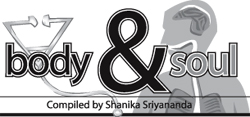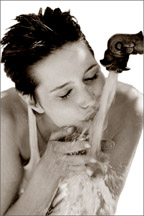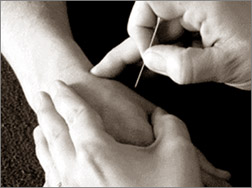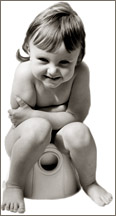|

[email protected]
Renal failure:
The silent scourge
World Kidney Day March 8 :
 Renal failure is on the rise not only in Sri Lanka but also
worldwide. Since there is no particular cause for the malfunctioning of
one's kidneys, health experts say that it can be controlled through a
balanced diet, proper exercises and also taking immediate steps to
control diabetes and hypertension, which are silently damaging the
kidneys. Renal failure is on the rise not only in Sri Lanka but also
worldwide. Since there is no particular cause for the malfunctioning of
one's kidneys, health experts say that it can be controlled through a
balanced diet, proper exercises and also taking immediate steps to
control diabetes and hypertension, which are silently damaging the
kidneys.
What are kidney diseases?
Kidney diseases are disorders that affect the kidneys; the two organs
that remove waste products, produce certain hormones, and regulate the
level of chemicals in blood.
How does the kidney function?
A major function of the kidneys is to remove waste products and
excess fluid from the body. These waste products and excess fluid are
removed through urine.
The production of urine involves highly complex steps of excretion
and reabsorption.
This process is necessary to maintain a stable balance of body
chemicals.
The critical regulation of the body's salt, potassium, and acid
content is performed by the kidneys. The kidneys also produce hormones
and vitamins that affect the function of other organs. For example, a
hormone produced by the kidneys stimulates red blood cell production. In
addition, other hormones produced by the kidneys help regulate blood
pressure and others help control calcium metabolism.
There are two kidneys, each about the size of a fist, located on
either side of the spine at the lowest level of the rib cage. Each
kidney contains about one million functioning units, called nephrons.
A nephron consists of a filtering unit of tiny blood vessels, called
a glomerulus, attached to a tubule. When blood enters the glomerulus, it
is filtered and the remaining fluid passes along the tubule. In the
tubule, chemicals and water are either added to or removed from this
filtered fluid, according to the body's needs, with the final product
being the urine we excrete.
Types of kidney diseases?
Kidney disease usually affects both kidneys. If the kidneys' ability
to remove and regulate water and chemicals is seriously damaged by
disease, waste products and excess fluid build up occur, causing severe
swelling and symptoms of uraemia (kidney failure).
There are many different types and causes of kidney disease. These
can be characterized as hereditary, congenital or acquired.
Hereditary Disorders
These can be transmitted to both males and females, and generally
produce clinical symptoms from teenage years to adulthood. The most
prevalent hereditary kidney condition is polycystic kidney disease.
Other hereditary conditions include Alport's syndrome, hereditary
nephritis, primary hyperoxaluria and cystinuria.
Congenital Disease.
This usually involves some malformation of the genitourinary tract,
usually leading to some type of obstruction which subsequently produces
infection and/or destruction of kidney tissue. The destruction can
eventually progress to chronic kidney failure.
Acquired Kidney Disease.
These diseases are numerous, the general term being nephritis
(meaning inflammation of the kidney). The most common type of nephritis
is glomerulonephritis, and again, this has many causes.
Kidney Stones.
These are very common, and when they pass, the pain can be extremely
severe in the side and back. Stone formation can be an inherited
disorder, secondary to a malformation and/or infection in the kidney, or
can occur without any prior problem. The pain can appear suddenly and in
waves, and then disappear rapidly when the stone is passed.
Nephrotic Syndrome
This refers to a large protein loss in the urine [frequently in
association with low blood protein (albumin) levels, an elevated blood
cholesterol and severe retention of body fluid, causing swelling
(edema).
This disease can be a primary disorder of the kidney or secondary to
an illness, affecting many parts of the body (for example diabetes
mellitus).
Long-standing High Blood Pressure (hypertension)
This can cause kidney disease itself or can be a result of a kidney
disorder. Uncontrolled high blood pressure can accelerate the natural
course of any underlying kidney disease.
Diabetes.
Long standing diabetes can lead to kidney failure. However, tight
control of blood glucose levels over the years may reduce those
complications.
Drugs and Toxins
Certain medications, toxins, pesticides and "street" drugs (i.e.,
heroin) can also produce kidney damage.
Causes and Risk Factors of Kidney Diseases
Unfortunately, the cause of many kidney diseases is still unknown,
but controlling high blood pressure and diabetes can reduce the risk of
many kidney diseases.
Symptoms of Kidney Diseases
Although many forms of kidney disease do not produce symptoms until
late in the course of the disease, there are at least six warning signs
that may indicate kidney disease:
1. Burning or difficulty during urination
2. An increase in the frequency of urination
3. Passage of blood in the urine
4. Puffiness around the eyes, swelling of the hands and feet
5. Pain in the small of the back just below the ribs
6. High blood pressure
Diagnosis of Kidney Diseases
Your doctor will obtain a complete medical history and perform a
physical exam. He or she may recommend blood tests and certain urine
tests, which can provide much information about your kidney function.
Treatment of Kidney Diseases.
Some kidney diseases can be successfully treated and others progress
to advanced kidney failure, requiring dialysis and/or transplantation.
For example, kidney infections and kidney stones can often be
successfully treated. Chronic inflammation of the glomerulus (glomerulonephritis)
is the most common kidney disease, which slowly progresses to kidney
failure. Your doctor may recommend certain medications or suggest a
specific diet for you.
Needles that heal all ailments
by Dr. Nalin Wasantha Kumara
 New treatments may finally succed in putting one or two painless
needles. New treatments may finally succed in putting one or two painless
needles.
For most victims, Arthritis simply means pain, stiffness in the
joints sometimes moderate, sometimes severe, usually responsive to
treatment with one of a number of days. Pain can be just the beginning,
though for all the people who suffer from the variant of the disease
known as rheumatoid arthritis.
This unfortunate minority may experience not just discomfort but also
joint deformities, fatigue, nodules at tissue under the skin and inside
internal organs and in rare cases, inflammation of the membrane
surrounding the heart and lungs.
Unfortunately, even the most powerful existing medications, are
carrying unacceptable side effects or our clinicians are understandably
a bit giddy, therefore, at the news that after more than a decade of no
progress, not just one but a number of new treatments are all at once
streaming out of research labs.
The natural pain relieving biochemical now, known as endorphins are
endogenous morphine substances which are found in the pituitary and
parts of the CNS. Enkephalin is a sub fraction of endorphin a neuron
transmitter occurring in the brain at the same sites where opiate
receptors have been found.
Both body acupuncture and ear acupuncture have been found to raise
blood serum and cerebrospinal fluid CSF levels of endorphins and
enkaphalins. Nuloyone is an opiate antagonist which blocks morphine,
blocks endorphins, and also blocks the anal gesia produced by
stimulation of auricular reflex points and body acupuncture points.
The excitement began with a growing understanding of how rheumatoid
arthritis works. Unlike its mere common cousin osteoarthritis, which
causes pain in more than 20 million mostly older Americans through
simple deterioration of joint cartilage, rheumatoid arthritis is a
complex disease involving an immune system gone awry.
Most experts believe the trigger for rheumatoid arthritis is an
ordinary infection in a joint, to which the immune system mounts an
ordinary response.
Then, for some unknown reason, the white blood cells that are
fighting invading microbes attack the joint itself-specifically the
synovial sac, which acts as both a cushion that keeps bones from banging
together and a source of lubricating fluid.
Even as the white cells attack they send out signs, in the form of
hormones called cytokines, that rally more troops to their aid.
Meanwhile, the besieged synovial cells secrete prostaglandins, which
cause inflammation. All this makes the joint redden and become sore.
Modern scientific researches has been found that acupuncture can
benefit not only for arthritis but also headache, heavy bleeding
flushes, white discharges, menopause depression. In addition to sexual
disorders in male and female infertility, sterility, premature
ejaculation, impotency.
Herpes, pain intercourse, in female and all sexual troubles. Asthma,
sinusitis, migraine, skin disorders, eczema, psoriasis, pimples,
overweight, cholesterol, gastritis, blood pressure, diabetes,
Parkinson's disease. Paralysis, varicose vein psychological disorders,
mental depression, insomnia, schizophrenia, hysteria, mania and phobia.
Mm.........Mm....It's constipation...
 James knew he had to go. But when he got to the boys' bathroom at
school, he sat down on the commode and nothing happened. He waited a
couple of minutes and nothing. He tried hard but it kind of hurt. After
a while a little poop came out, but it was small and hard, sort of like
marbles. James knew he had to go. But when he got to the boys' bathroom at
school, he sat down on the commode and nothing happened. He waited a
couple of minutes and nothing. He tried hard but it kind of hurt. After
a while a little poop came out, but it was small and hard, sort of like
marbles.
James flushed, zipped up, and washed his hands. He didn't feel much
better. Why? He was constipated.
What is Constipation?
Constipation (say: con-stuh-pay-shun) is not having a bowel movement
(pooping) as often as you usually do or having a tough time going
because the poop is hard and dry. Normal poop is sort of soft and easy
to pass, so it shouldn't be too hard to have a bowel movement.
What Are the Symptoms?
Besides not pooping as often as you usually do, you may feel full and
a little uncomfortable if you're constipated. Your belly may feel
stretched, too. When you do go to the bathroom, you may feel like you
have to work really hard to get the poop out, and it may hurt a little
to go.
If your poop is hard and dry, pushing it out may cause tiny tears in
the skin of your anus. If this happens, you might see a bit of blood on
the toilet paper when you wipe. After you're done, you may have only
gone a little and may feel like you still have to go.
Sometimes when a kid's really constipated, some watery poop like
diarrhoea might leak out around the hard poop that's still inside. This
can cause a messy accident, even for kids who stopped having accidents a
long time ago.
If you think you're constipated, or if you see blood on the toilet
paper after you wipe, tell your parents. It's probably no big deal, but
it's a good idea to let them know what's going on.
Why Do Kids Get Constipated?
Constipation is pretty common, and different things can cause it.
Some reasons why kids get constipated include:
Unhealthy diet. If you fill your diet with fatty, sugary, or starchy
foods and don't eat enough fibre, your bowels may slow down. Fibre -
found in fruits, vegetables, and whole grains - can keep your poop from
getting hard and dry. So reach for an apple!
Not enough exercise. Moving around helps food move through your
digestive system. If you don't get enough active play time - like
running around outside - you could get constipated.
Not enough fluid. Drinking water and other liquids keeps poop soft as
it moves through your intestines. When you don't drink enough, the poop
can get hard and dry, and you might get stopped up.
Not going to the bathroom when you need to. Sometimes kids don't go
to the bathroom when they have to. Maybe they don't want to use the
bathroom at school, or maybe they just don't want to stop what they're
doing right then. But if you make a habit of ignoring your body's
signals that it's time to go, that might make it harder to go later on.
Stress. Kids may get constipated when they're anxious about school or
something at home. This can happen during scary events, like starting at
a new school, or even if you're just worried about a lot of homework and
tests coming up. If you think stress is plugging things up for you, talk
to an adult you trust about it.
Irritable bowel syndrome. Some kids have a condition called irritable
bowel syndrome (IBS). It can act up when they're stressed or when they
run into certain triggers, like fatty or spicy foods.
A kid who has IBS may have constipation sometimes and diarrhoea
sometimes, as well as belly pain and gas. Some medical conditions - like
diabetes, lupus, or problems with the thyroid gland - can also cause
constipation, but these aren't that common in kids.
If you're worried that your constipation is a sign of something else,
talk to your parents and your doctor.
How Is It Treated?
If you're constipated you probably won't need any special treatment.
Chances are you'll soon start going regularly again on your own.
If your doctor decides you should come in for a visit, he or she
might suggest some medicine or something else to get you going. But
don't take any medicine for your constipation unless your doctor
recommends it.
Other than some medicine, the doctor might order an X-ray or other
types of tests that look inside your digestive system. But usually
constipation is just constipation. You eventually poop and feel better.
What Can I Do to Help Myself?
You can follow these steps when you're constipated and even when
you're not! Drink plenty of water. This can keep your poop from getting
too hard and dry. Eat more fibre. Fruit, vegetables, and whole grains,
such as oatmeal and popcorn, all add fibre to your diet. And fibre can
keep things moving.
Exercise. Throw a ball with your friends, ride your bike, or shoot a
few hoops. Activity helps you go to the bathroom regularly. In other
words, if you get moving, your bowels will, too!
kidshealth.com |
